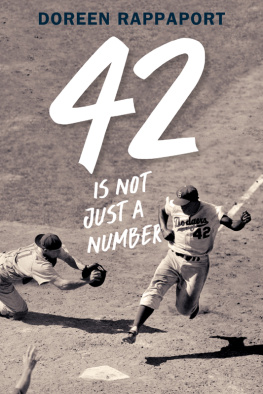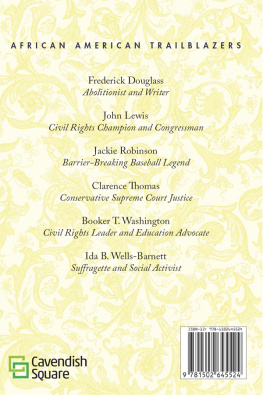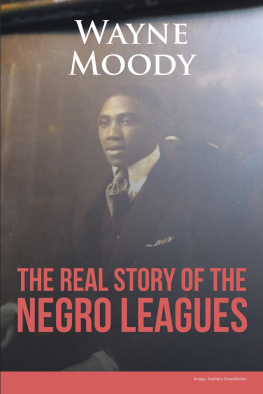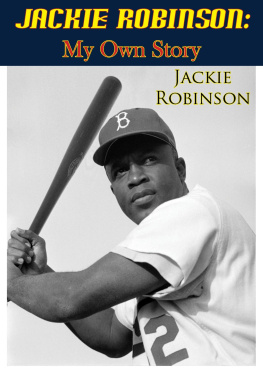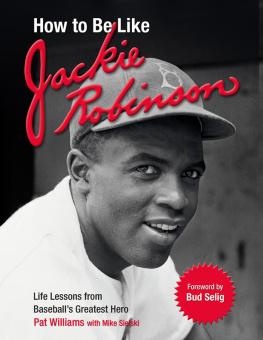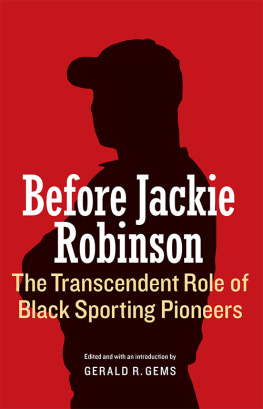
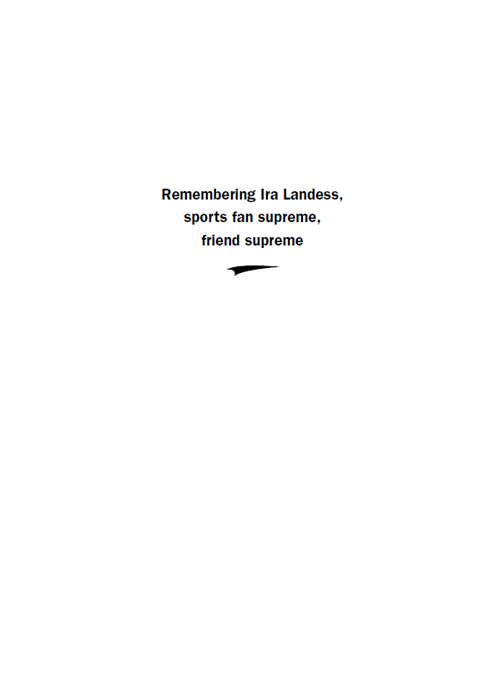

E ight-year-old Jack swept the last bit of dirt from the front steps into the dustpan. Mama was so proud of their five-bedroom house and wanted everything in it and around it to be neat and clean. The way his mother made good things happen, Jack liked to think of her as having magical powers.
Seven years earlier, when Jacks father abandoned the family, Mallie Robinson had packed up her five children and moved from Georgia to California with only three dollars sewn into the lining of her petticoat. Other members of Mallies family came along, too: her sister, Cora Wade; Coras husband, Sam; and their two sons.
Within only a few days of arriving in Pasadena, Mallie landed a job. For five days a week, fifty-two weeks a year, she cleaned and cooked for a white family. She worked hard for eight dollars a week, but she never complained. She was gone from early morning until night, so much of Jacks care fell to his older sister, Willa Mae.
For the first two years in California, the Robinsons and the Wades lived together in an apartment, sharing rent. Sams job didnt pay much more than Mamas. Yet, miraculously, within two years, the families had squirreled away enough pennies and nickels and dimes for a down payment on a house.
When Mama saw 121 Pepper Street for sale, she thought it one of the finest on the block. The house, however, was in a white working-class neighborhood. The neighbors got an unpleasant surprise when the two black families moved into the two-story clapboard house. Someone burned a cross on the lawn. Another person went from house to house in the neighborhood to find someone who could buy them out, but no one had enough money. So the families stayed.
It took time, but Mama eventually won the respect of most of her white neighbors. She had sent Jacks older brother Edgar to do odd jobs at no charge for Mrs. Coppersmith, a widow who lived next door. A nearby bakery gave Mama its day-old leftovers. The milkman gave her unsold milk. Mallie could have easily used the baked goods and milk to help feed her large family, but she shared whatever she received with her neighbors, even the ones who were hostile.
Some neighbors still resented having a black family on the block. One frequently called the police to complain that Edgar, whizzing around on roller skates, made too much noise. An elderly couple scurried inside their house whenever any of the children walked their way.
Two years later, in 1924, Uncle Sam and Aunt Cora had saved enough money to buy a separate house, just a few blocks away. Now 121 Pepper Street belonged just to Mama, but she needed more money to meet expenses.
Jack wished he could help, but he was still too young to get paying jobs like his older brothers. Next year he might be able to get a newspaper route or mow lawns. For now, Mama believed that he could sweep, so he was going to do it, and do it good.
Mamas flowers were her pride and joy. So was the backyard, with its vegetable garden and fruit trees. Sometimes Mama raised turkeys, chickens, ducks, and rabbits, but her green thumb, livestock, and salary werent always enough to feed her family of six. Many nights Jacks dinner was bread soaked in milk or in water and sugar, or leftovers that Mama brought home from her job. Some mornings Jack was so hungry he could hardly stand up when he got to school.
Jack finished sweeping the front walk and moved on to the sidewalk. Across the street a girl was coming out of her house. She glared at Jack, then shouted, Nigger, nigger, nigger.
As young and little as he was, Jack could not let this racial slur pass. His grandma Edna, born a slave, took great pride in being black and had taught Jack that Negro was the only proper name for their race. Any other name was a slur and should not be tolerated. In a flash, Jack was shouting, returning the insult with a cry of cracker a derogatory term for poor rural whites in the South. The girls father overheard Jacks taunt and charged outside to throw stones at Jack. Jack threw stones right back at him. Stones flew until the girls mother came outside and yelled at her husband for fighting with a child.

J ack idolized his older brother Mack, not just for his athletic ability but for his character and determination as well. In junior high school, Mack was already a star athlete in football, baseball, basketball, and track and field when he was diagnosed with a heart murmur. The school, fearing that something could happen to Mack if he played, banned him from all competitive sports. Mack refused to accept their decision and turned to his mother for help. Mallie met with school officials and convinced them to at least let Mack participate in non-contact sports. Mack returned to track and field and became a superstar sprinter. He won many events and set a statewide record for the high hurdles.
Mack was in high school now and hadnt lost a race so far this year. Today he was competing for John Muir Technical High School in the 100-yard dash. Jack tried never to miss watching a meet.
Jack was a natural athlete himself, always playing something. His keen hand-eye coordination made him a marbles champion. In games of dodgeball, Jack moved so fast that no one could ever hit him. With Jack on the field, his third-grade soccer team was so good that they were able to challenge the sixth-grade team and win. In the schoolyard at lunchtime, he played handball. No matter what game or sport, Jack always played to win, and usually did. For all the pride he took in his talents, however, he knew he could never run as fast as Mack.
Mack crouched in starting position: hips up, weight resting on his fingertips. A sprinter had to be ready to run as soon as the pistol signaled the start of the race, so his stance was critical. So was reaction time. There wasnt a split second to lose.
The pistol shot popped. Jack watched Mack take off, spraying dirt behind him. Mack pumped his legs hard, his eyes focused on the track. He never looked over his shoulder or to the side. That could add fractions of a second to his time and cost him the race.
Jack knew that Mack was thinking of only one thing: winning.
Mack picked up speed, and Jack yelled and cheered along with every other Muir fan as his brother crossed the finish line ahead of the pack.

J ack undressed quickly and put on his bathing suit. He and his gang were going to have a chance to cool off today at Pasadenas municipal pool. The Pepper Street Gang, as they called themselves, was a mix of poor black, Mexican, Japanese, and a few white kids. They didnt carry knives or guns or take drugs or drink alcohol. They didnt even have a clubhouse or jackets or a secret handshake. Restricted from activities in the city because of race and money, they had banded together to create their own fun. Jack intended to have lots of fun at the pool this day.

